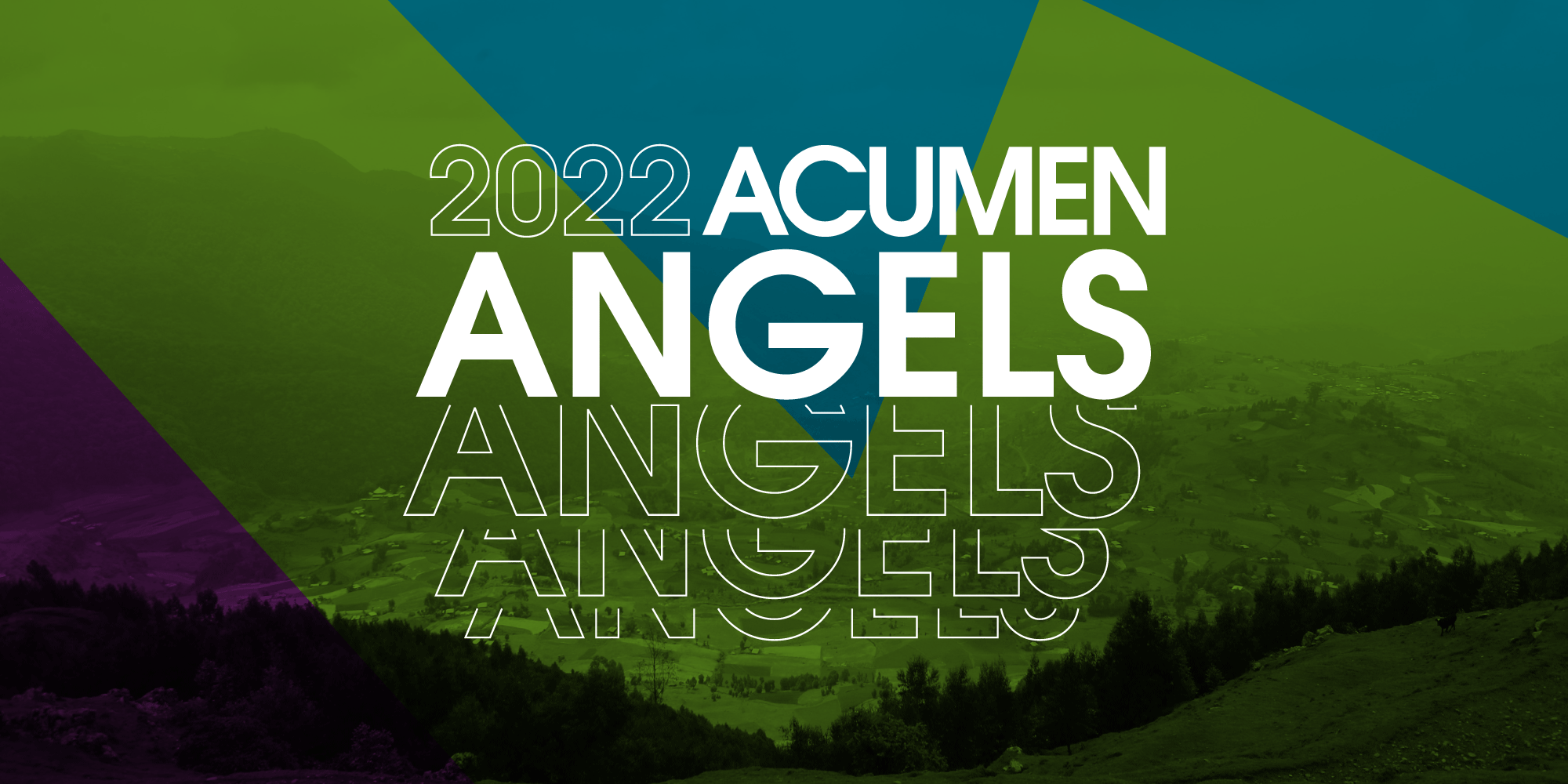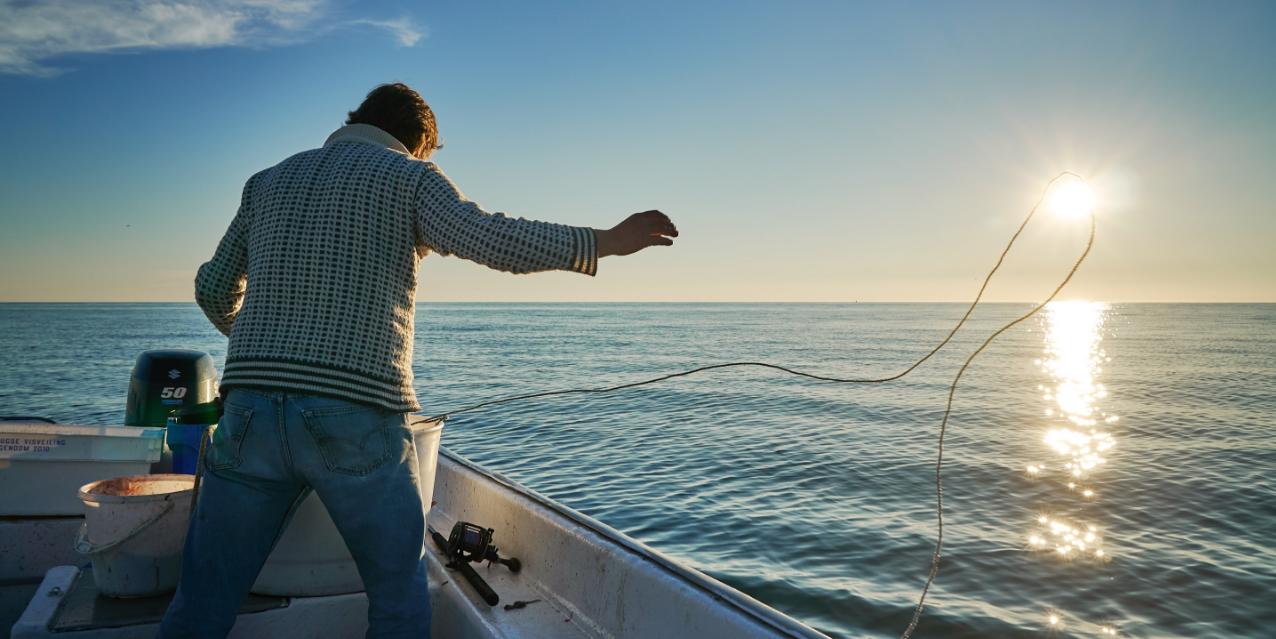Leadership
Navigating a sea of complex stakeholders across Latin America’s small-scale fishing communities
Three alumni practice what they’ve learned during the Resilient Small-Scale Fisheries Leadership Accelerator to manage stakeholder complexities
September 29, 2023-1.jpeg)
Photo provided by Rodrigo Díaz Plá.
Balancing the needs, perspectives, and desires of stakeholders across the small-scale fisheries sector is an important challenge to overcome if we’re to build resiliency for the sector, its people, and our planet.
Acumen Academy together with Environmental Defense Fund launched our second Resilient Small-Scale Fisheries Leadership Accelerator, offered for the first time in Spanish, to help leaders in the small-scale fisheries sector across Latin America find innovative ways to tackle old and new challenges. Working across different roles and unique populations, a diverse cohort of 12 individuals embarked on a journey of vulnerability and self-reflection, coming out of the 13 week program with new approaches, skill sets, and opportunities to create more resilient and sustainable fisheries systems across the region.
Three alumni from the program discuss how they’re putting lessons from the accelerator into practice in their work and across their communities.
Adaptive leadership to manage stakeholder timelines
Victoria Jiménez Esquivel is a Mexican oceanologist by training who shifted away from the pure natural sciences to focus on the social aspects of the fishing industry, involving herself with fishing communities and exploring ideas for how to incorporate traditional fishing knowledge with hard data and the natural sciences.
She joined the Resilient Small-Scale Fisheries Leadership Accelerator looking for a community who faced similar challenges and to enhance her leadership skills. “I was coming from a lot of experience with communities, a lot of data analysis work. But I didn't yet have enough tools to take the organization and initiative to the next level. It seemed opportune and ideal to start with an accelerator of this style that not only touches upon what's happening in Mexico, but what's happening throughout Latin America, and to bring these experiences from other parts, which is much more enriching.”
.jpeg?width=1280&height=720&name=WhatsApp%20Image%202020-09-08%20at%2012.47.37%20(1).jpeg)
Photo provided by Victoria Jiménez Esquivel.
Currently, Victoria is the general coordinator of the Alianza Kanan Kay, an initiative working to establish a network of Fishing Refuge Zones (ZRP) as a tool to strengthen small-scale fishing communities and cooperatives in Mexico’s Yucatan Peninsula.
“There are quite a few stakeholders involved. There are different conflicts in different dimensions and I believe the main one is the timing each of us have. Matching the timing between the governmental agenda and the conservation agenda, and the interests of the fishing sector — it is an interesting conflict.”
According to Victoria, the government sector has certain objectives they need to achieve before a specific deadline, but these timelines often come into conflict with the social and conservation processes that must be accepted and adopted in order to successfully implement the Fishing Refuge Zones project. “This tool is 100% participatory, it’s 100% about community. If the entire community does not agree to it, the tool won't work and simply can't be designed.”
Joining the accelerator, Victoria sought to answer, “How do we channel the government’s impetus, excitement, and desire to support into an agreement that meets their goals without sacrificing the processes that should be carried out by the community?”
Today, she’s applying the tools of adaptive leadership to reach agreements across this multi-stakeholder environment. “It's like putting everything into a pressure cooker. Each ingredient you put into the cooker — which in this case are our actors — has different cooking times. You can't be constantly pressuring every stakeholder equally in order to achieve an adaptive change, or a change in thinking. Each actor has their own processes, their own moments, and must live them according to their level of tolerance towards that change.”
.jpg?width=7952&height=5304&name=_DSC0735_CC%20(1).jpg)
Photo provided by Victoria Jiménez Esquivel.
She now understands why government actors take certain actions. “It's not because they want to put their foot down, or slow down processes, or don't want to participate. It's because they respond to the particular needs they have and we must put ourselves in their shoes as well.”
With this new perspective, Victoria’s concept of resilience has expanded to include all players in the system. “The fishermen and fisherwomen are resilient, they are the ones who are adapting to change. The ocean out there is resilient, it's trying to keep up. We as organizations are resilient too. But to understand that the government sector is also doing this as best they can and looking for strategic alliances because they know they need support, I think that’s resilience as well.”
‘Getting on the balcony’ to view the negotiating tables in a new way
Like Victoria, Henri Márquez Escudero faces similar stakeholder challenges. Henri is a biologist by training who comes from a family of fishermen. Working in the sector for over 23 years, he’s on a mission to make the fishing communities in the area of Barra de Corazones and the mouth of the Cazones River in the Gulf of Mexico more sustainable for future generations.
My dad taught us to fish since we were children, but he always told us to study because fishing was going to end, and not to fall in love with the lagoon. When you come back to the fishing community as a biologist, sharing and transferring all you've learned in the classroom is very difficult. Even more so if it’s your father confronting you.
As a member of the cooperative Sociedad Cooperativa Puente de Tampamachoco S.C. DE R.L, Henri’s greatest challenge is getting fishermen “to understand that protecting the species is fundamental so that fishing activities can exist for many years to come, so that our children and their children can see it.”
But the community resists change, continuing to use the same systems from nearly a decade ago. “The goal is to encourage less fishing and establish a balance where such fishing can regain value and fishermen can obtain better prices than they currently have.”
The Resilient Small-Scale Fisheries Leadership Accelerator has encouraged Henri to continue building his skills and expand his own mind. “I arrived thinking, ‘What could I learn if I already had 23 years of experience working with these groups, and what could they teach me if I was already the king of the negotiating tables?’ But I’ve learned that everything is changeable, that every day there are new ways to sit down and talk, to work with the fishermen groups or with other groups whom we are carrying out activities with.”
Facing a pressing new challenge, Henri is putting this knowledge into practice. A new gas pipeline is being constructed that will run from Tuxpan to the Dos Bocas refinery in the state of Tabasco, impacting 745 kilometers of Verarcuz's coastline. This area consists entirely of medium-scale artisanal fishing zones where more than 30,000 fishermen work on a daily basis.
“This is a very difficult challenge. The fishing sector has never before had to face such a situation. The country's energy development is necessary. We cannot stop this type of project. But we do believe we can participate in the growth of Mexico's energy sector, while also allowing our fishermen — us and our families — to continue our activities as we have up to now.”
Henri has learned to “get on the balcony” and see this challenge from a new perspective. “It encourages you to put yourself in different positions when you're at a negotiating table. You have to put yourself in the place of others and even consider how you yourself are at the center of the problem."
For Henri, the accelerator arrived at just the right time. “I am carrying out the process in a different way than when I had initially begun to approach it. There will be many values in tension but I believe these lessons from the accelerator and what I’ve learned during this time will help us put the sector on the right path.”
Polarities management to de-escalate stakeholder tensions
Rodrigo Díaz Plá has also learned how to navigate opposing views and tensions. Rodrigo is an author and social anthropologist working with coastal communities, artisanal fishing organizations, and institutions in Chile for the past 15 years. He directs the Centro de Investigación/Acción de la Pesca Artesanal y Sociedades Costeras, QUIÑE, where he applies multidisciplinary approaches to better understand and work with artisanal fishing and coastal communities.
He’s currently working with the Chango population, an indigenous coastal community living in northern Chile who only recently received legal recognition as an ethnic group by the state of Chile. Working with the community since 2016, Rodrigo has supported them through the process of obtaining legal recognition and continues working on various projects to safeguard their rights to territories and resources.
.jpg?width=1280&height=853&name=IMG-20220929-WA0038%20(1).jpg)
Photo provided by Rodrigo Díaz Plá.
He joined the accelerator to grow his leadership skills and overcome an emerging challenge. Artisanal fishermen and indigenous communities in southern Chile are clashing over rights to certain fishing areas, and as tensions escalate, Rodrigo anticipates a similar conflict will also arise in northern Chile between artisanal fishing groups and the Chango community he works with.
Having worked with various stakeholders in the fishing sector over the years, Rodrigo knows these two groups well, and believes misinformation and misconceptions are largely to blame for their conflict and growing tensions.
“In Chile, in recent times, political tempers are running very high. I think this has generated visions and brought out the worst in people in terms of racism and classism. Disinformation about this group of people, of seafarers, is widespread in Chile. We believe part of our work is to make these communities more visible.”
Applying lessons on polarity management, Rodrigo plans to de-escalate tensions and yield productive conversations. “I can understand that misinformation is a major issue in these conflicts. And in my case, I feel it’s necessary to empower myself as a changemaker so that the right conversations, proposals, and decisions can progress effectively. The tools provided by the accelerator in terms of putting these different visions into dialogue can help tackle a lot of misinformation.”
.jpg?width=1280&height=960&name=IMG-20221017-WA0031%20(1).jpg)
Photo provided by Rodrigo Díaz Plá.
A growing community of bold leaders
As Victoria, Henri, and Rodrigo put into practice lessons from the accelerator to address unique stakeholder challenges, they know they’re not alone. Together with 9 other leaders from their Latin American cohort, they’ve joined The Foundry — a bold community of 1,300+ alumni from Acumen Academy’s Accelerator and Fellowship programs who are changing systems across seas and around the world.
Want to know more about our community of inspiring leaders? Follow Acumen Academy on LinkedIn, Twitter, and Facebook to learn how they're building a better world for people and the planet.
.jpeg)

